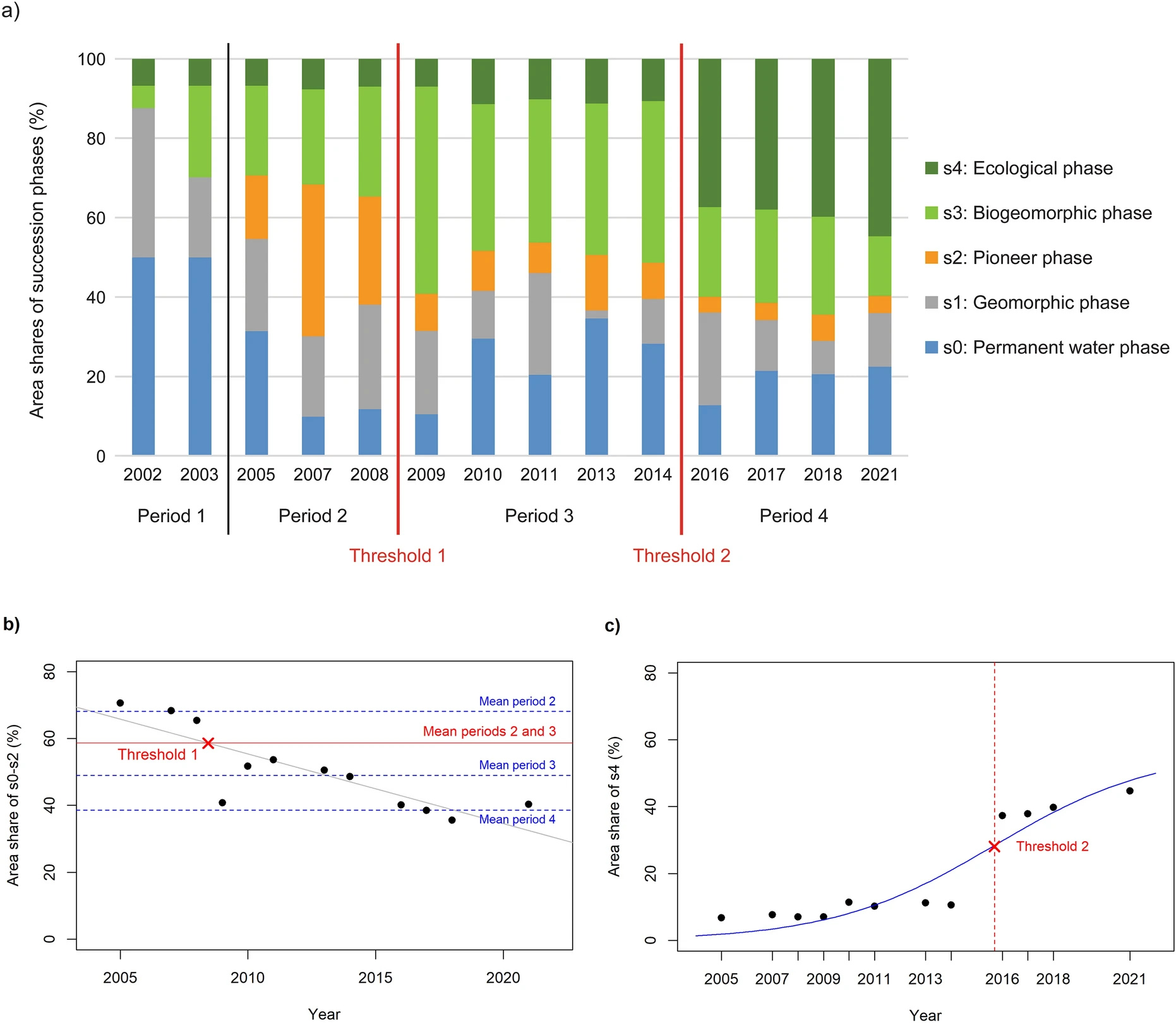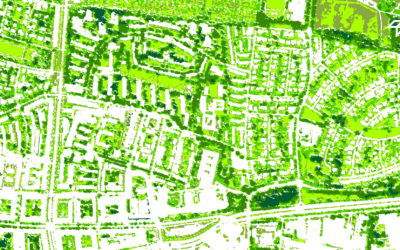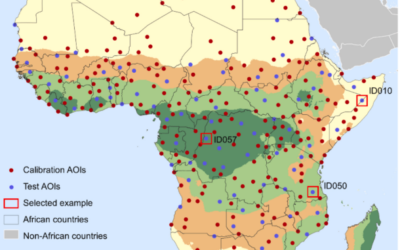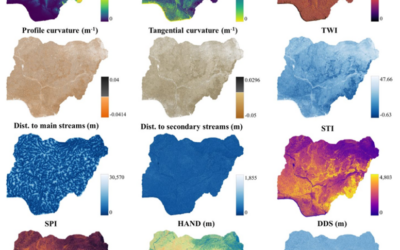EORC PI Florian Betz co-authored a publication on biogeomorphic tipping points arising from the DFG funded project “fluvial biogeomorphology across multiple scales”. In the publication led by PhD student Isabell Becker from the Karlsruhe Institute of Technology, a combination of UAV image time series and eco-hydraulic modeling was used to assess whether small scale changes in vegetation cover drive state changes in the entire river system. The results show, that once phases of low hydrogeomorphic disturbance allow vegetation to encroach and stabilize sediment bodies through biogeomorphic feedbacks, the state of the entire river segment is changing and also larger disturbance events cannot re-initiate hydro-geomorphic dynamics. These findings have important implications for river restoration as it becomes obvious that it is not sufficient to create open gravel bar habitats once as they will not sustain without regular disturbance by low magnitude flood events. You can read the full study here: https://doi.org/10.1007/s10750-025-05836-y (open access).
New publication on the relationship between urban green and land ownership
New publication on the relationship between urban green and land ownershipResearchers from the Technical University of Munich (TUM), the Earth Observation Center (EOC) of the German Aerospace Center (DLR) in Oberpfaffenhofen and our Earth Observation Research Cluster...









